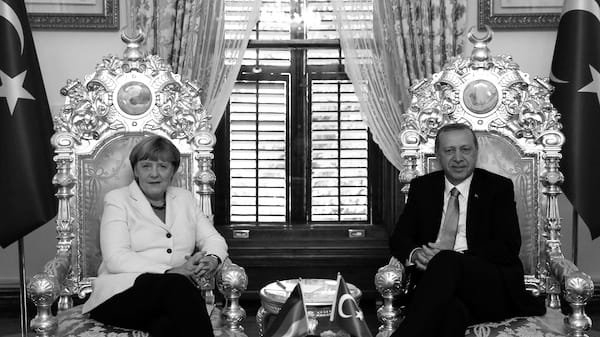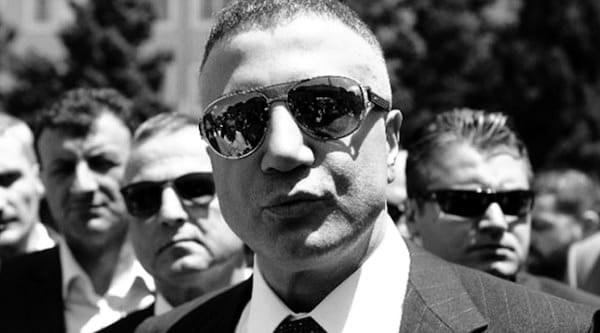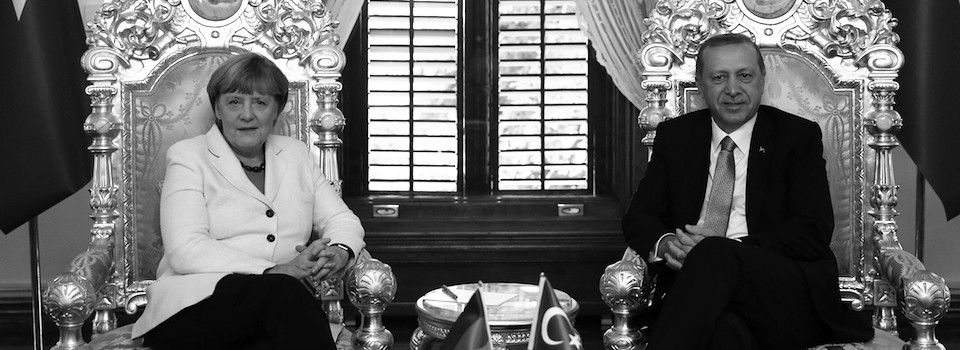Academic (or otherwise) freedom threatened in Turkey.
Turkey’s president Recep Tayyip Erdoğan’s lynching and defamation modes are again on the headlines, this time with the charges and accusations against “Academics for Peace”, an initiative of academics who signed a statement that became known as the Peace Petition. The statement, released on Monday 11 January, was signed by more than thousand academics from about 90 universities, including Noam Chomsky, Judith Butler, Etienne Balibar, David Harvey, and Immanuel Wallerstein.
The “Academics for Peace” (Barış için Akademisyenler) statement “We will not party to this crime!” (original in Turkish) comes as a result of heavy military curfews imposed by the Turkish government on several Kurdish-majority cities in south-east Turkey, since August 2015, but dramatically scaled up since mid-December, when a number of cities —the Sur district of Diyarbakir, Cizre, Silwan, Şırnak, Nusaybin and Silopi — were put under military siege, and as a result around 200,000 civilians are trapped without electricity, water, food, medicine, and hundreds have died. Reacting to these events, the statement is organised around three parts. The first part makes a diagnosis of the situation as a violation of national and international laws and conventions and as a massacre that has led to a deep humanitarian crisis for many Turkish citizens. The second part poses demands on the government for ending the violence, for compensation and reparation towards the victims, for independent monitoring possibilities in the areas, for negotiations that include different experts and that will draw the roadmap towards peace, where the academics offer themselves as volunteers to the process. Finally, they conclude by dissociating themselves from the massacre and refusing to stay silent. They also declare that they will persist until their demands are met.

Mr Erdoğan’s reaction (see also here) in the aftermath of the statement was defiant, derogatory and defamatory. It aimed to turn the diagnosis of the situation up-side down legitimating his own version and definition of what is happening (“defending its lands against a terrorist organisation”, “Turkey’s problems is a terror problem, not Kurdish”, “operations carried out by our security forces are to protect”, to delegitimize the demands of the academicians by derogating them (“a gang of so-called academics”), constructs them as ungrateful who take advantage of the state goods (“they receive their pay from the state and have a higher quality of life than the average citizen”), and accusing them of treason and constructing them as enemies of the Turkish state (now and in the past) who side with terrorists and foreigners (“accusing their own state”, “we are face to face with treason”). His final aim is hold the absolute right to truth and to the intervention needed (“Terrorism issue is no middle-ground matter. You are either on the side of the state or of the terror organisation and terrorists. Turkey will continue its struggle against terror. We do not have to get permission from these so-called academics.”), refusing thus every possibility for dialogue or drawing a common roadmap to peace. The only legitimate interlocutors would be the foreign academics whose “hearts and minds are open”. He invites them to do and visit Turkey and “see for themselves” the truth. A personal invitation is sent to Noam Chomsky.
Mr Chomsky has responded to Erdoğan’s comments about academics highlighting his double standards and hypocrisy. Consistent with his previous views he accuses Mr Erdoğan of supporting ISIS and other similar organisations, and fighting the Kurdish people (“the main force fighting ISIS in Iraq and Syria”). Rejecting the invitation by Mr Erdoğan, in an email to the Guardian he said: “If I decide to go to Turkey, it will not be on his invitation, but as frequently before at the invitation of the many courageous dissidents, including Kurds who have been under severe attack for many years.”
In the aftermath of Mr Erdoğan’s comments the Higher Education Council (YÖK) formally delegitimized the Academics for Peace’s statement (“This declaration cannot be associated with academic freedom”), treating the petition as “terrorist propaganda”. Within a day of President Erdoğan’s speech and the announcement of the YÖK investigation several universities initiated punitive measures against their faculty, including arrests of a dozen academics and hundreds of criminal investigation across Turkish universities under the Articles 216 and 301 of the Penal Code, and Article 7 of Anti-terror Law, “inflaming hatred and hostility among peoples”, “denigration of the Turkish nation”, and “terrorist organisation propaganda”. The scholars against whom a criminal case has already been opened on these grounds are prohibited from leaving the country.
The Tübitak (The Scientific and Technological Research Council of Turkey) has received explicit instructions to sanction the signatories of the declaration. Without receiving any official notification, the signatories have already been excluded from scheduled panels and calls for research projects applications funded by Tübitak. Those among the signatories holding a post-doc position abroad funded by Tübitak have already been notified that their scholarships have been cut and that they have to immediately return to Turkey.
Restrictions on academic freedom are a matter of state policy in Turkey for years now, and YÖK has been granted powers by the government to take over private universities and interfere with academic appointments and funding. By treating the Peace Petition as treasonous and criminal, launching an investigation of signatories, and by punishing dissent and criticism, the government is effectively interfering with and violating: the ability of these academics to conduct their research (as many work on Kurdish issues), to conduct independent research, to monitor areas under siege and curfew, restrict freedom of speech and freedom of assembly, and delegitimize dissent and opposition. It is useful to remember that YÖK itself was established by the military government in 1982 as a means to limit universities’ autonomy and their capacity to create opposition to the state.
As a member state of the Council of Europe and a signatory of the European Convention for the Protection of Human Rights and Fundamental Freedoms, Turkey is required to protect freedom of thought, expression and assembly, rights which lie at the heart of academic freedom. These rights are also protected by the Universal Declaration of Human Rights, the International Covenant on Civil and Political Rights, and the Final Act of the Conference on Security and Cooperation in Europe (OSCE), of which Turkey is signatory. These rights are also enshrined in articles 25-27 of the Turkish Constitution.
Mr Erdoğan as usual has seized upon the petition as a means by which to continue his polarization strategies in the already fragmented and divided Turkish society, to demonise and deny dissent and criticisms, and to deny the call for peace. The polarization of the Turkish society helps the government to justify its security policies and to direct the anger of the Turkish masses towards dissident citizens and organizations. In fact a worrisome escalation of the reaction to the petition has been the awakening of an ultra-nationalist presence of nationalist students (for example the Grey Wolves) on Turkish campuses, marking professors’ doors and threatening individuals who signed the petition. Turkey’s far-right MHP party has also been to the forefront of the media defamatory efforts. Extreme was the threat made by Sedat Peker, a criminal with links to Turkish nationalist organizations: “we will spill your blood and we will shower in it!” In recent years, the AKP governments have been extremely successful in shaping the political discourse of the country by stigmatizing the opposition as “enablers of terrorism” and as “domestic enemies” of the Turkish state (as during the Ergenekon trials and Gezi Square protests). Invoking both terrifying internal and external enemies is the first step towards fascism.

With the addition of violent authoritarianism to the original AKP’s trademark blend of neoliberal economic policies and Islamic ideology, these developments represent clearly some of the symptoms of fascism. The complex apparatuses of the Turkish state are coming under the control of a single mass party. Citizens’ groups and organizations that do not follow the government (or the AKP Party) line are harassed, targeted, surveilled, criminalised, arbitrarily detained and released. The press and distribution of information is heavily controlled. Criticism, dissent, and opposition are cast as espionage or treason, are silenced and punished. The rule of law is subverted or suspended. Furthermore the republic has long standing experience in denying genocide and massacres, in failing to fulfill promises made, and in organising military coups that lead to the repression of society and democratic voices. But a nation build on lies rests on sand.
Mr Erdoğan’s speech calls for academicians to leave serious politics to him. But the ethical and political tasks are one and the same. Indifference is in fact the precondition and the drive for fascism. Indifference is one of the foundations of the spreading and strengthening of militarism. Being an academic is a gift, an advantage, a luxury – says Mr Erdoğan. Being an academic is first and foremost a task, an obligation, a duty – retort the scholars who penned the declaration. The crime will not be in our name, we will not stay silent. Mr Erdoğan can today hold academics accountable in his trials, but it is history the only court that will hold individuals accountable for the lack of necessary action, for their apathy, indifference and silence.
Acknowledgements
Cover Image credit: Bloomberg. Inline image: Sedat Peker, convicted Turkish criminal and nationalist leader, from www.bugun.com.tr

